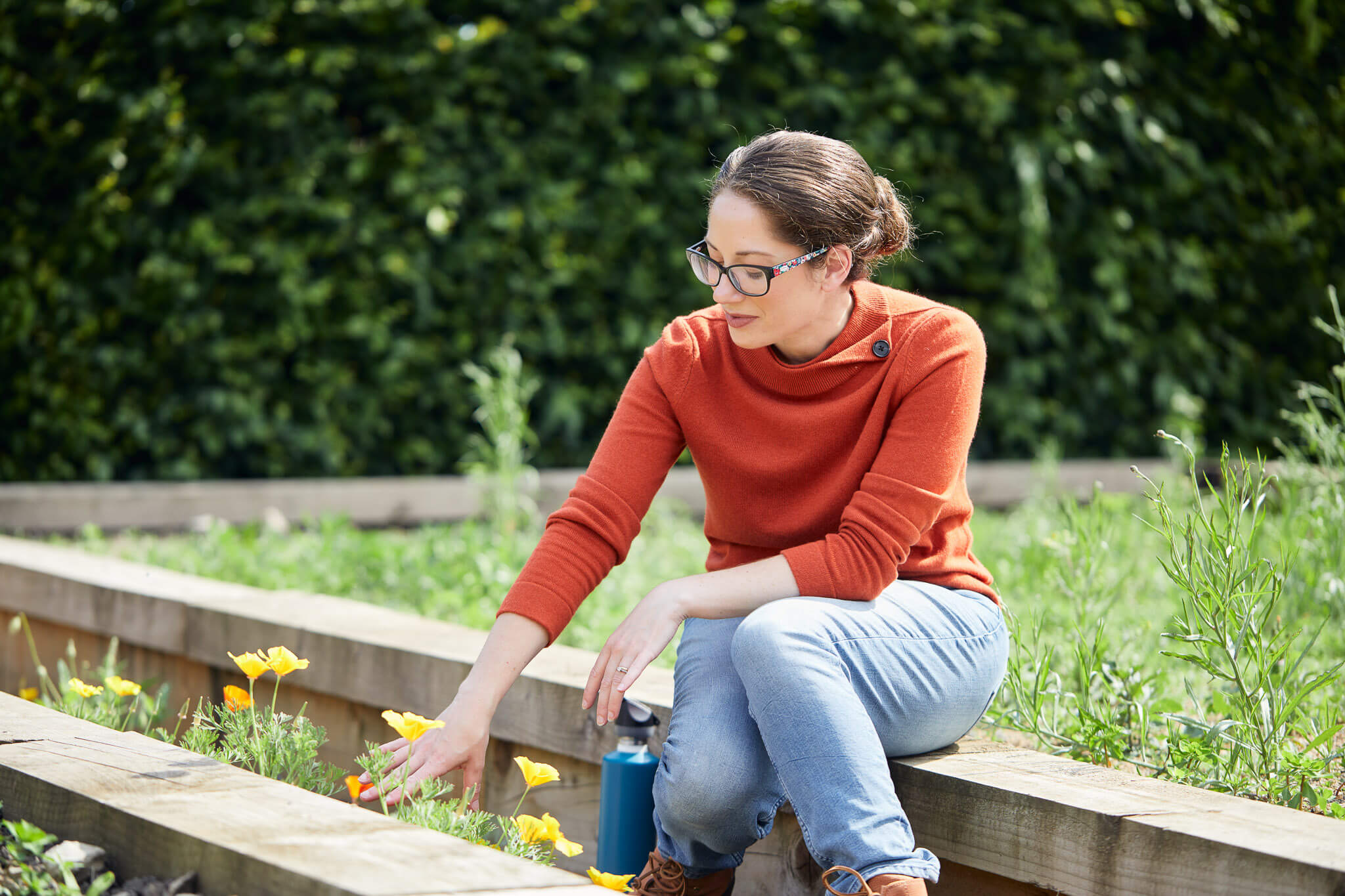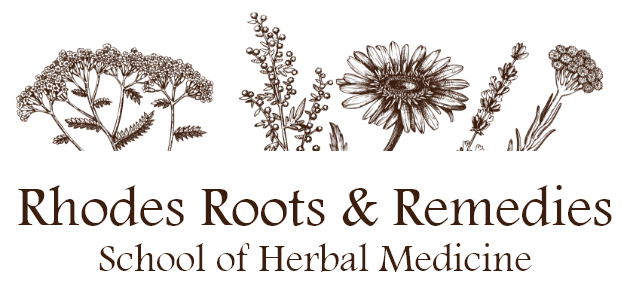If you’ve been looking at lists of herbal medicines and their uses online or in a stack of books, you may be starting to wonder how to choose which herb to use when multiple herbs are listed as having the same ‘use’ or how to choose the right herb for the right person at the right time. What you’re yearning for is to go beyond collecting information and to start gathering knowledge. Here are five simple steps to make the shift in learning herbalism.

1. Change your mindset
Many people start exploring herbal medicine thinking about herbs as green substitutes for allopathic medicines. For example, you may wonder - What herb can I use instead of aspirin when I have a headache? - or - What herbal medicines can I use to stop a fever instead of Calpol? - or What herbs can I use for period pain? This is often one of the first steps on the herbal medicine path and a completely valid one. The way to get beyond lists of herbal medicines and their uses, however, is to first shift this mindset. Herbs are not swaps for allopathic medicines because they don’t work in the same way. Most allopathic medicines are designed to suppress or stop a natural healing process or message from the body asking for support. Herbs, however, facilitate those processes and respond to those messages and help your body through what it’s dealing with. So instead of wondering which herb you can use to stop your headache, start wondering why you have a headache to begin with.
2. Learn the energetics of the herbs
This may sound a bit ‘woo’, but it’s actually incredibly practical. The energetics, or qualities, of herbs are things like whether it has a warming or cooling effect on the body, whether it’s drying or moistening, whether it relaxes constriction in the body or tightens up overly lax structures. When you shift your focus from looking at lists of herbal medicines and their uses to how a herb is interacting with your body, you’ll get a much more lasting and solid understanding of what kinds of processes and messages a particular herb is best suited to support.
3. Learn the tastes of herbs
This is the key to unlocking the physiological processes a medicinal herb kicks off in your body without scrolling through endless lists of herbal medicines and their uses. There are seven herbal tastes - salty, bitter, pungent/aromatic, sweet, mucilaginous, sour and astringent. Each engages and communicates with different receptors and processes in your body. The bitter taste, for example, gets the bile flowing in the liver, which begins the process of digestion - not just of food, but also of hormones and emotions. The salty taste carries a wealth of minerals and nutrients throughout the body (e.g. iron, magnesium, calcium) whilst flushing out waste products and toxins the body doesn’t need to hold onto. When you learn to understand the different tastes of herbs, how they interact with the body and which of the body’s messages they best support, you don’t have to rely on lists of herbal medicines and their uses. You can simply taste a herb you know is safe to ingest and then understand how to work with it.
4. Go for deep knowledge, rather than surface level facts
By their nature, lists of herbal medicines and their uses can only give you surface level facts. To truly work with herbal medicines safely and effectively, you need to cultivate deep knowledge. Think of it as getting to know a person. Skimming an online profile of someone is completely different to meeting someone in person many times and developing a true, lasting relationship with them. Scrolling through lists of herbal medicines and their uses is like reading someone’s online profile. Getting hands-on with the plant - growing it, making different types of herbal remedies with it, experiencing its tastes, feeling its energetic qualities in the body - and doing all of this over time is how you build a relationship with it so you can actually work with it in your life.
5. Want to really go beyond lists of medicinal herbs and their uses? Take your herbal learning offline.
Herbal medicine lives in the natural world, not the digital one (or even the black and white books on shelves world). It is a living, breathing practice that is best learned with experienced herbalists in person. The best way you can go beyond staring at lists of medicinal herbs and their uses is to find an in-person herbalism course near you and go. You’ll meet like minded people, you’ll get to develop skills hands-on and, most of all, you will develop lasting knowledge that becomes part of your daily life. So leave those lists of medicinal herbs and their uses online and start learning herbalism in the real world!
So if you’ve been realising the plethora of lists of medicinal herbs and their uses you can find online are lacking the depth of knowledge you’re really looking for, you now know how to go beyond them. First, change your mindset. Then learn the energetics and tastes of the herbs. Focus on cultivating deep knowledge, rather than collecting surface level facts. Finally, take your herbal learning offline.
If you’re here in the UK and you’re keen to go beyond lists of medicinal herbs and their uses, you’re very welcome to take the next step on your journey learning herbal medicine with us on our intensive herbalism course - Awaken Herbal Wisdom - which spans all four seasons and gets herbalism both deep into your bones and your daily life. The foundation of this course is thoroughly learning the taste of herbs, how they engage with the body and which messages they best support, so you can begin to know a core set of herbs very well and use them safely and effectively. You can learn more about our herbal medicine course here. Be sure to put your name on the waiting list to see what the current cohorts are up to and get first access to enrolment before it opens.
Whatever your next step learning herbalism is, I hope you enjoy the journey!
At Rhodes Roots & Remedies School of Herbal Medicine, our practice of herbalism is rooted in the belief that we must remember, reclaim and relearn our knowledge of our bodies, our autonomy and how to work with plant medicine in order to bring control of our own health back into our families and homes for a sustainable future for ourselves and the planet. Through our intensive herbalism course, we facilitate the development of confident, empowered herbalists, attuned to the messages of their bodies and the natural world. Living the deep wisdom of herbal medicine within themselves, their homes and their communities, they uplift themselves and others, creating a stronger society organically. We do hope you'll join us on your journey!

